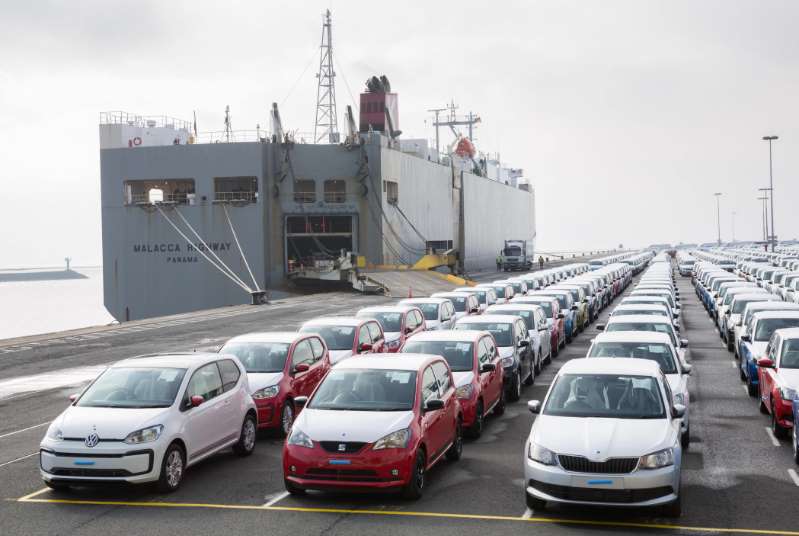Decline of around 30 percent – full year 2020 minus 15.5 percent – Reasons: New customs regulations after Brexit and logistics problems – Experts: Further declines can be expected, but not like in January.

German exports to Great Britain fell by around 30 percent in January after the Brexit trade agreement came into force. However, experts do not assume that similarly strong declines will be recorded in the next few months. However, many companies are changing their supply chains because of the UK's exit from the EU. This will further slow trade with the island.
The reason for the slump at the beginning of the year were “the effects of the completed Brexit”, announced the Federal Statistical Office on Tuesday. As early as 2020, German exports to the United Kingdom had plummeted by 15.5 percent to 66.9 billion euros, mainly because of the corona pandemic. That was the biggest minus since the financial and economic crisis in 2009. “Since 2016 – the year of the Brexit referendum – German exports to the United Kingdom have steadily declined,” according to statisticians. In 2015, German exports there were still 89 billion euros.
The president of the German wholesale association BGA, Anton Börner, referred to new customs regulations, additional bureaucracy and logistics problems with a view to the January figures. “However, given the lack of preparation on the part of the British, it could have been even worse.” The trend will not change anytime soon. “Many companies have restructured their supply chains due to Brexit.” However, the new processes should be implemented in the coming weeks and months.
The President of the Kiel Institute for the World Economy, the native Austrian Gabriel Felbermayr, said that the slump in January is likely to be an outlier on this scale. Economic output in Great Britain would probably have collapsed twice as much as in Germany in 2020 because of the pandemic. “In addition to Brexit, this will have a strong impact on the demand for German products. In the medium term, we do not expect an export slump of this magnitude to perpetuate.” A well-rehearsed border clearance system will be created on both sides, which in principle enables a relatively smooth movement of goods – albeit at higher bureaucratic costs than before.
Great Britain left the European Union last year. Since the beginning of 2021, the trade and cooperation agreement, which was only negotiated at Christmas, has been in effect for the time being, which brings numerous changes for companies. The German Chamber of Commerce and Industry (DIHK) assumes that German companies will have to submit around ten million customs declarations per year in the future. That alone should cost around 400 million euros.

